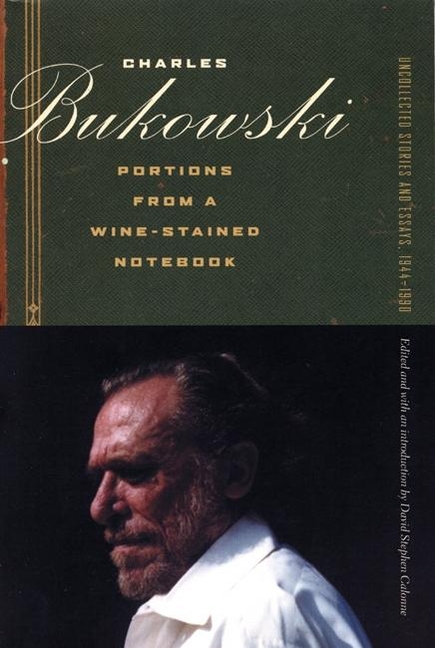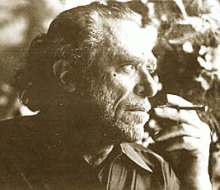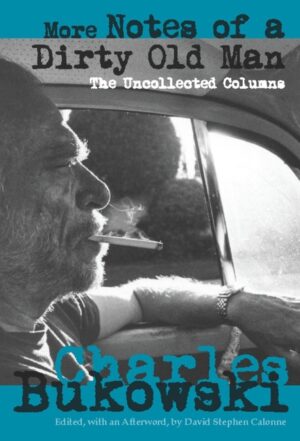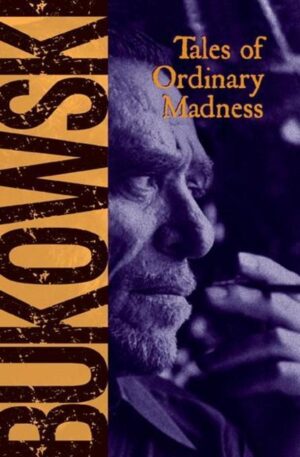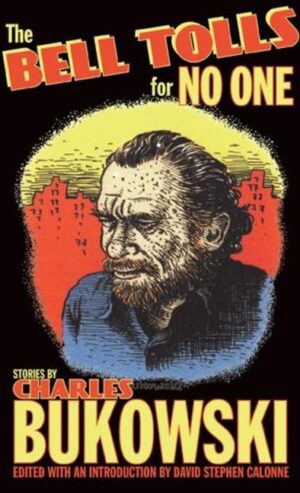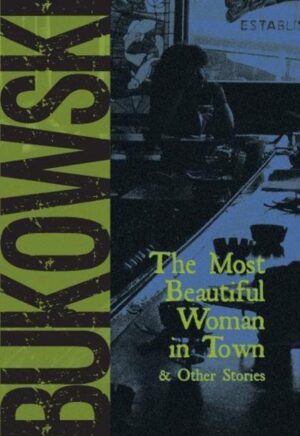Charles Bukowski (1920-1994), one of the most outrageous and controversial figures of 20th-century American literature, was so prolific that many important pieces were never collected during his lifetime. Portions is a substantial selection of these wide-ranging works, most of which have been unavailable since their original appearance in underground newspapers, literary journals, even porno mags. Among the highlights are his first published short story, “Aftermath of a Lengthy Rejection Slip”; his last short story, “The Other”; his first and last essays; and the first installment of his famous “Notes of a Dirty Old Man” column. The book contains meditations on his familiar themes (drinking, horse-racing, etc.) as well as singular discussions of such figures as Artaud, Pound, and the Rolling Stones. Other significant works include the experimental title piece; a fictionalized account of meeting his hero, John Fante (“I Meet the Master”); an unflinching review of Hemingway (“An Old Drunk Who Ran Out of Luck”); the intense, autobiographical “Dirty Old Man Confesses”; and several discussions of his aesthetics (“A Rambling Essay on Poetics and the Bleeding Life Written While Drinking a Six-Pack (Tall),” “In Defense of a Certain Type of Poetry, a Certain Type of Life, a Certain Type of Blood-Filled Creature Who Will Someday Die,” and “Upon the Mathematics of the Breath and the Way”, revealing an unexpectedly learned mind behind his seemingly offhand productions.
Portions From a Wine-Stained Notebook is essential reading for Bukowski fans, as well as a good introduction for new readers of this innovative, unconventional writer.
“Finally, after Bukowski’s nearly 50 published books: novels, short stories, poetry, letters, essays, etc. David Calonne has unearthed Portions From a Wine-Stained Notebook, the previously missing link in Bukowski’s oeuvre that suddenly makes everything come clear.” –John Martin, Black Sparrow Press
“You know, I just think this is really hot. Among its many gifts, Portions from a Wine-Stained Notebook has one of the best lesbian sex scenes I ever read. I read Bukowski standing up one day in a bookstore (City Lights) and thought he did it too. What Henry Miller did. He wrote American. When it meant something good. Fucked up, male, but incredibly true. In a distinct rhythm.” –Eileen Myles, author of Sorry, Tree and Cool for You
“Bukowski wrote the way he lived, and Portions from a Wine-Stained Notebook is as vivid, bad-ass, screamingly funny, and gutter-angelic as the man himself. Reading these stories and essays, you can hear the beating heart of the poet in every line. Bukowski never wasted a word, and this collection should go far towards shining a light on prose in danger of being lost in the shadow of its larger-than-life author. Those new to his work will have the good fortune of discovering a writer who could break your heart, make you howl, and slap you off your bar-stool you in a single sentence. In a world long since gone lousy with faux hard-living typers and posers, he was the original.” –Jerry Stahl author of Permanent Midnight, Perv, Plainclothes Naked, and I, Fatty.
Charles Bukowski (1920-1994) published his first story when he was twenty-four and began writing poetry at the age of thirty-five. His first book of poetry was published in 1959; he went on to publish more than forty-five books of poetry and prose, including books published by City Lights Publishers such as Notes of a Dirty Old Man, More Notes of a Dirty Old Man, The Most Beautiful Woman in Town, Tales of Ordinary Madness, Portions from a Wine-Stained Notebook, and Absence of the Hero.
-
Hi, I'm Charles Bukowski
Charles Bukowski was born in Andernach, Germany on August 16, 1920, the only child of an American soldier and a German mother. At the age of three, he came with his family to the United States and grew up in Los Angeles. He attended Los Angeles City College from 1939 to 1941, then left school and moved to New York City to become a writer. His lack of publishing success at this time caused him to give up writing in 1946 and spurred a ten-year stint of heavy drinking. After he developed a bleeding ulcer, he decided to take up writing again. He worked a wide range of jobs to support his writing, including dishwasher, truck driver and loader, mail carrier, guard, gas station attendant, stock boy, warehouse worker, shipping clerk, post office clerk, parking lot attendant, Red Cross orderly, and elevator operator. He also worked in a dog biscuit factory, a slaughterhouse, a cake and cookie factory, and he hung posters in New York City subways.
Bukowski published his first story when he was twenty-four and began writing poetry at the age of thirty-five. His first book of poetry was published in 1959; he went on to publish more than forty-five books of poetry and prose, including Pulp (Black Sparrow, 1994), Screams from the Balcony: Selected Letters 1960-1970 (1993), and The Last Night of the Earth Poems (1992), and the following books with City Lights Publishers: Notes of a Dirty Old Man (1981), The Most Beautiful Woman in Town & Other Stories (1983), Tales of Ordinary Madness (1984), Portions from a Wine-Stained Notebook: Uncollected Stories and Essays, 1944-1990 (2008), Absence of the Hero: Uncollected Stories and Essays, Vol. 2: 1946-1992 (2010), More Notes of a Dirty Old Man: The Uncollected Columns (2011), and The Bell Tolls for No One (2015). He died of leukemia in San Pedro on March 9, 1994.

